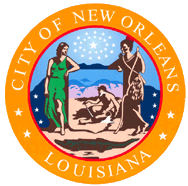After years of acrimony and legal battles, New Orleans firefighters and Mayor Mitch Landrieu’s administration are on the same page this spring, together urging voters to support a property tax increase that would help resolve their long-standing disputes.
The police millage would be used to support a hiring plan aimed at getting the force up to 1,600 officers by 2020 and slashing the department’s dismally long response times.
“We’re asking the public to pay for what they demanded,” Landrieu said, referring to adding hundreds of additional officers to the Police Department. “On top of that, we’re asking the public to do what they said they wanted to do, which is pay the firefighters what we owed them.”
Several business groups and public employee unions have endorsed the tax increases, while no organized opposition has yet emerged.
The administration’s argument for the fire millage is relatively straightforward, even if the route the city took to get to this point is a convoluted history involving decades of legal clashes between the firefighters union and various city administrations over pay and a more recent dispute over the way the department’s pension system is run.
The second case began under the Landrieu administration, which reduced the city’s payments into the firefighters pension system. Administration officials said the system needed to be reformed, pointing to its dismal track record on investments and what they argued were overly generous policies for calculating retirement benefits.
Despite court orders demanding the city pay both the back pay and the retirement contributions, which at one point resulted in Landrieu being held in contempt of court and nearly placed under house arrest, the administration held off on paying up until a deal could be reached to settle both issues. It was able to do so because state courts cannot force a city to pay legal judgments.
The settlement required the city to pay the $75 million it owes to the firefighters in back pay and also to pledge to put enough money into the pension system each year to guarantee retirees their benefits.
The administration got concessions on how the pension system is handled, including changes that will make benefits accrue more slowly, push back the retirement age from 50 to 10 years less than that required by Social Security and make changes to how benefits are calculated and investment decisions are made. The administration predicts those changes will save the city $275 million in payments over the next 30 years.
If the millage measure fails next month, the city will still be on the hook for the firefighters’ back pay and for funding their pension system. But both the city budget and the firefighters themselves would feel the crunch.
Without the extra money, the city would take more than twice as long to pay the $75 million and would have to keep cutting checks for about 30 years. That money, as well as the additional funds needed to ensure the pension system is properly funded, would have to come out of the city’s general budget, meaning less money would be available for other services.
In addition to Landrieu and the firefighters, the millage increases have been endorsed by other labor unions, the nonpartisan Bureau of Governmental Research and two high-profile business groups, Greater New Orleans Inc. and the Business Council of New Orleans and the River Region. The latter was heavily involved in the negotiations over the firefighters settlement.


